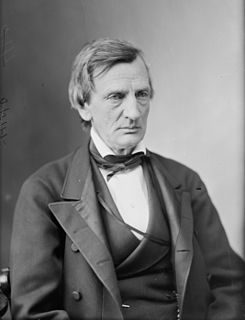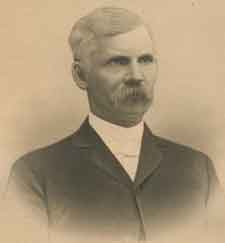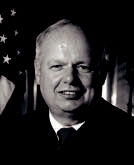
Indemnity is a contractual obligation of one party (indemnifier) to compensate the loss incurred to the other party due to the acts of the indemnitor or any other party. The duty to indemnify is usually, but not always, coextensive with the contractual duty to "hold harmless" or "save harmless". In contrast, a "guarantee" is an obligation of one party assuring the other party that guarantor will perform the promise of the third party if it defaults.

David Boies is an American lawyer and chairman of the law firm Boies, Schiller & Flexner. Boies rose to national prominence for three major cases: leading the U.S. federal government's successful prosecution of Microsoft in United States v. Microsoft Corp., his unsuccessful representation of Democratic presidential candidate Al Gore in Bush v. Gore, and for successful representation of the plaintiff in Hollingsworth v. Perry, which invalidated California Proposition 8 banning same-sex marriage. Boies is also known for defending controversial clients in the United States, including Theranos, tobacco companies, and Harvey Weinstein.
Reparations for slavery is the application of the concept of reparations to victims of slavery and/or their descendants. There are concepts for reparations in legal philosophy and reparations in transitional justice. In the US, reparations for slavery have been both given by legal ruling in court and/or given voluntarily by individuals and institutions.

Owen D. Young was an American industrialist, businessman, lawyer and diplomat at the Second Reparations Conference (SRC) in 1929, as a member of the German Reparations International Commission.

William Maxwell Evarts was an American lawyer and statesman from New York who served as U.S. Secretary of State, U.S. Attorney General and U.S. Senator from New York. He was renowned for his skills as a litigator and was involved in three of the most important causes of American political jurisprudence in his day: the impeachment of a president, the Geneva arbitration and the contests before the electoral commission to settle the presidential election of 1876.
Edward Davis (Ed) Fagan is a former American reparations lawyer who was disbarred for his conduct involving dishonesty, fraud, deceit, or misrepresentation. Fagan lost his license in both New York and New Jersey for failing to pay court fines and fees and for stealing client money and escrow trust funds from Holocaust survivors. He currently lives in Boca Raton, Florida.

Fredric Gerson Levin was an American plaintiffs' lawyer in the state of Florida, who served as chairman of Levin, Papantonio, Rafferty, Proctor, Buchanan, O'Brien, Barr, Mougey, P.A., a law firm in Northwest Florida. The Fredric G. Levin College of Law at the University of Florida is named for him because of a monetary donation he made to the school in 1999.

The United States of America vs. Friedrich Flick, et al. or Flick trial was the fifth of twelve Nazi war crimes trials held by United States authorities in their occupation zone in Germany (Nuremberg) after World War II. It was the first of three trials of leading industrialists of Nazi Germany; the two others were the IG Farben Trial and the Krupp Trial.

Charles James Ogletree Jr. is an American attorney and law professor who is currently the Jesse Climenko Professor at Harvard Law School, the founder of the school's Charles Hamilton Houston Institute, and the author of numerous books on legal topics.

Bennett Henderson Young was a Confederate officer who led forces in the St Albans raid, a military action during the American Civil War. As a lieutenant of the Confederate States Army, he entered Vermont from Canada and occupied the town of St. Albans.

Norman Randy Smith is a Senior United States Circuit Judge of the United States Court of Appeals for the Ninth Circuit. He lives and maintains chambers in Pocatello, Idaho.
The following article focuses on the movement to obtain redress for the internment of Japanese Americans during World War II, and significant court cases that have shaped civil and human rights for Japanese Americans and other minorities. These cases have been the cause and/or catalyst to many changes in United States law. But mainly, they have resulted in adjusting the perception of Asian immigrants in the eyes of the American government.
Kelly Charles Crabb was an American lawyer who specialized in media and entertainment issues. He served as the chief legal representative for the Beijing Olympics Organizing Committee in Los Angeles. Crabb was fluent in Japanese and received a bachelor's degree and then a Master of Public Policy degree from Brigham Young University and a J.D. degree from Columbia University Law School. Crabb served as a counselor in the Pasadena California Stake Presidency.
Lee Benson is a sportswriter and columnist for the Deseret News. He has covered at least nine Olympic Games for the paper and has written columns on Mormon issues. He has also co-authored a book with James W. Parkinson about American prisoners of war of the Japanese during World War II and their attempts to obtain reparations.
Jonathan W. Cuneo is an American lawyer who has represented clients in state and federal litigation and in government relations in the fields of antitrust, civil and human rights, consumer protection, corporate governance and securities for over three decades.

An overview on Asian slavery which has existed throughout. Although slavery has been abolished in every country, some forms of it still exist today.

Reparations for slavery is the application of the concept of reparations to victims of slavery and/or their descendants. There are concepts for reparations in legal philosophy and reparations in transitional justice. Throughout history reparations for slavery have been both given by legal ruling in court and/or given voluntarily by individuals and institutions. Reparations can take numerous forms, including: individual monetary payments, settlements, scholarships, waiving of fees, and systemic initiatives to offset injustices, land-based compensation related to independence, apologies and acknowledgements of the injustices, token measures, such as naming a building after someone, or the removal of monuments and renaming of streets that honor slave owners and defenders of slavery.
Seijuro Arafune was a Japanese politician and a Minister of Transport. He was a member of Liberal Democratic Party. Arafune resigned the Minister of Transport by the alleged abuse of power in 1966. Among these was requiring a National Railway express train to make regular stops at a station located in his own parliamentary constituency.

The Latter Day Saint movement has had varying and conflicting teachings on slavery. Early converts were initially from the Northern United States and opposed slavery, believing they were supported by Mormon scripture. After the church base moved to the slave state of Missouri and gained Southern converts, church leaders began to own slaves. New scriptures were revealed teaching against interfering with the slaves of others. A few slave owners joined the church, and took their slaves with them to Nauvoo, Illinois, although Illinois was a free state.









